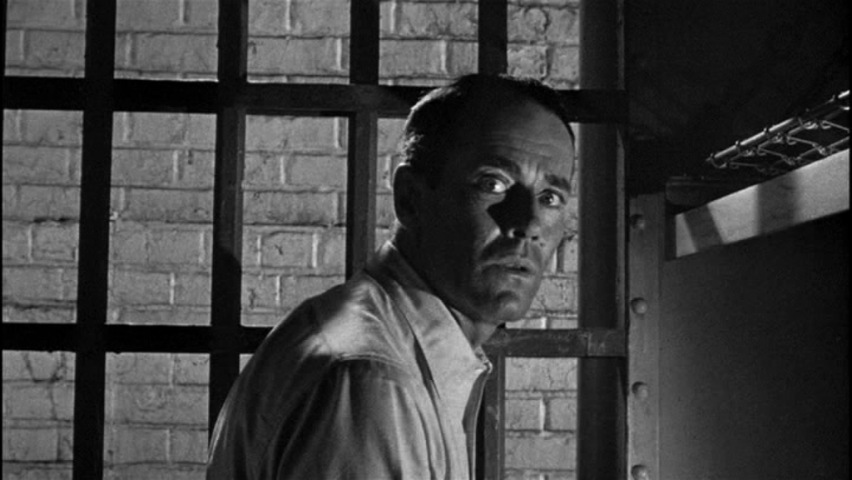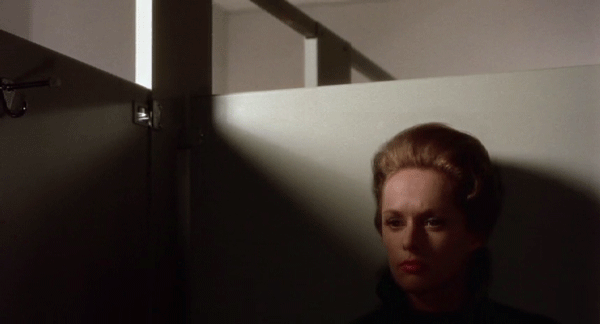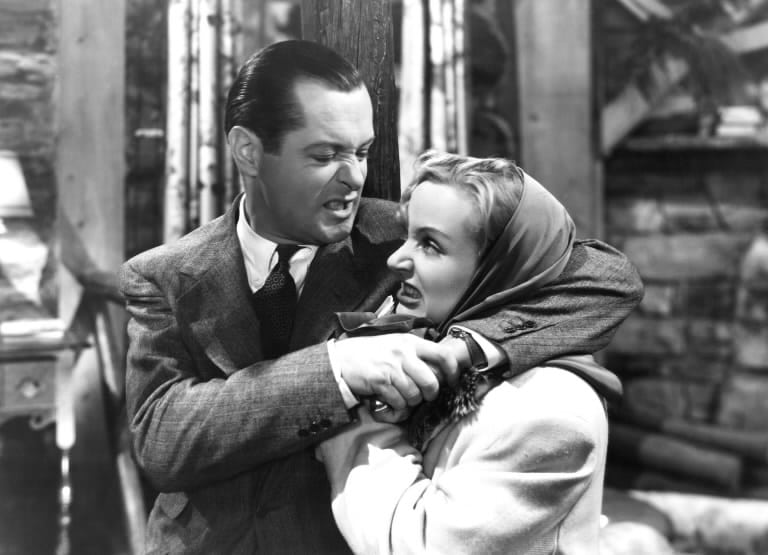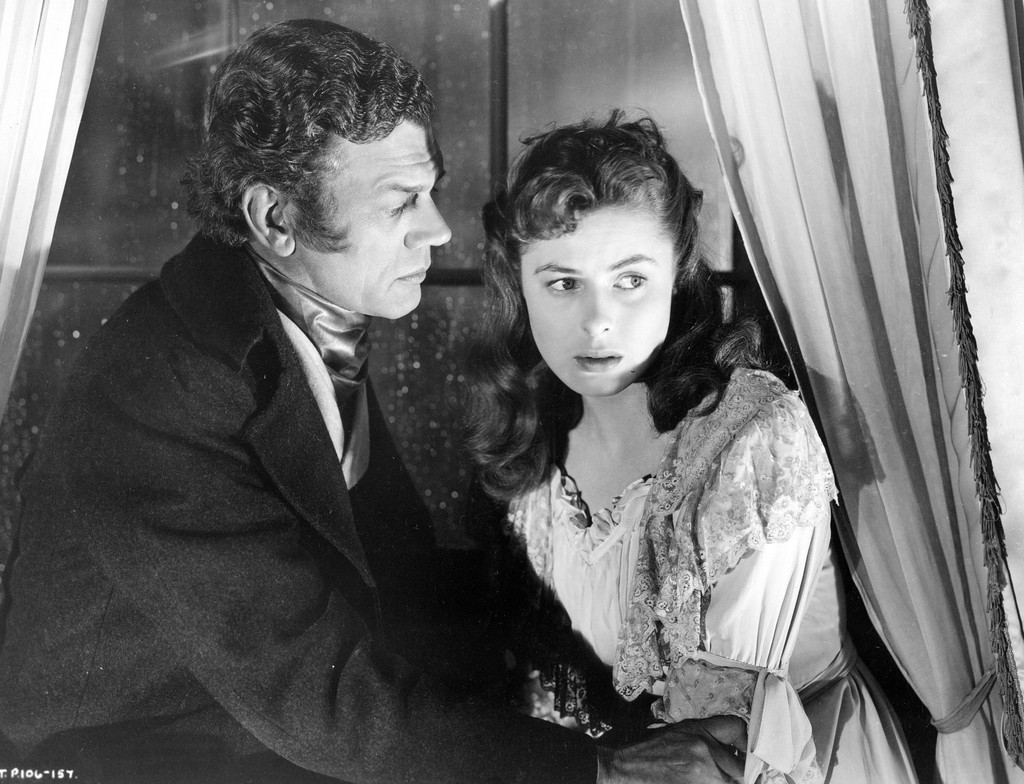flickchick85: you are doing the lord's work right now. When you finish in this thread, you'd better have another filmmaker in the chamber ready to countdown.

Thanks, I shall keep that in mind.
@flickchick85 i'm so glad you took my suggestion (pushiness? lol) and started writing up your thoughts on the films and rankings. i enjoyed reading each of them and it sounds like others are really enjoying it as well

I appreciate the push, CC.

These are gonna start getting a little more long-winded as we start getting into the ones that are more interesting to me, so apologies ahead of time, lol.
37. Marnie (1964)
I’ve often seen this film referred to as Hitchcock’s last classic, which is funny, because it was not well-received when it came out. Personally, there are a few of his films made later than this that I prefer, but I get why this has that rep. This was the last film he made with his regular cinematographer, editor and of course composer Bernard Herrmann, so it does indeed feel like the end of an era in his career. And of course, controversy runs deep in this one. This is his 2nd and final collaboration with lead actress Tippi Hedren, who now alleges that he sexually assaulted her on the set of it, after she refused his advances that started on the set of
The Birds. This horrifying backstory is made all the worse by what’s happening on screen.
Marnie is the story of a woman who’s essentially a career kleptomaniac – she gets jobs as bookkeeper for various companies, steals their money, then changes her identity. She eventually makes the mistake of pulling this con on Mark, played by Sean Connery, whose company was a client of another one that she stole from, and he recognizes her. Mark hires her anyway for his own amusement, becomes infatuated with her, and when she eventually makes her move to steal from him, he tracks her down and instead of turning her in, makes himself an accomplice and forces her marry him. Marnie is a character with some deep sexual trauma in her past, and she’s got a lot of psychological hang-ups. Mark takes advantage of this on multiple occasions, and also becomes obsessed with finding the root of it. He also, in his lust and desire to possess her, rapes her after they’re married, even after playing “the good guy” and promising not to touch her just a day or two before. Mark is a monster in every sense of the word, who doesn’t see Marnie as a person so much as a puzzle to solve. So you can see how this would be extra disturbing to watch, given the real-life context. The parallels of Mark and Marnie’s relationship to Hitchcock and Hedren’s is downright eerie at times, and I get the fascination with this because it’s like we’re seeing Hitchcock’s own psychological hang-ups and sexual obsessions splayed out for all to see. But, I just don’t really hold this in as high esteem as others do because if you look past all that, and just look at the film itself, there are aspects that just aren’t that great by my estimation. The technical aspects are fantastic as only late Hitchcock could be, but the acting. Hoo boy, the acting. Sean Connery is borderline awful in this role. You never see his feelings change toward Marnie, one way or another. The lust and obsession we’re supposed to be seeing from him never materialize. In fact, based on this performance, if I had to guess, I would say he never even
spoke to Hedren off-screen, that’s how little interest he shows. This next bit I feel bad saying because of what she went through, but Hedren honestly isn’t much better. She puts in a lot of effort, but she’s just not cut out for such a complex role as this, and it often comes across as a middle school drama version of this grisly subject matter. She’s far from my favorite Hitchcock leading lady, I’ll admit. The other aspect that doesn’t work so well for me is the armchair psychology at work that comes across as downright goofy at times. Now,
Spellbound, a film I rank much, much higher on my list, has this same problem, but in that film it actually somewhat adds to the charm, because the story is more wild and escapist to begin with. When dealing with subject matter more sensitive and real such as this, it becomes much harder to find the charm in it.
36. Torn Curtain (1966)
Right on the heels of
Marnie, Hitchcock returned to a well-worn, far less controversial stomping ground – a spy thriller. A more effective one at least, than
Topaz, due in no small part to the more streamlined plot with one clear, central protagonist. Paul Newman stars as a rocket scientist (lol yes) who pretends to defect to East Berlin in order to procure some intel for US intelligence. This is complicated by the involvement of his fiancée, played by Julie Andrews, whom he didn’t let in on this little scheme, but who knows something’s up, knows he wouldn’t defect, and is determined to get to the bottom of it. As Hitchcock spy pictures go, this one’s more run-of-the-mill than most, but even a run-of-the-mill Hitchcock spy flick can be quite entertaining, and this one certainly has standout moments. There’s a fun cat-and-mouse sequence inside a Berlin museum, a couple of memorable chases, and one killer fight sequence in a farmhouse that is absolutely Hitchcock at his finest. Newman and Andrews as leads were apparently forced on Hitchcock by the studio and he reportedly wasn’t happy with them at all, but while their characters were a bit flat, I thought they acquitted themselves just fine here (certainly better than Connery and Hedren!). All that said, this is definitely one of those - like
Topaz - that goes on too long and outstays its welcome.
35. Mr. & Mrs. Smith (1941)
Yes, Alfred Hitchcock directed a Hollywood screwball comedy, and it actually turned out pretty well. Robert Montgomery and Carole Lombard star as David and Ann, the titular married couple who naturally fight for days and make up on a regular basis, and who one day find out that, due to a technicality, their marriage of three years isn’t actually legal. When David doesn’t propose marriage again, Ann becomes indignant, believing he doesn’t want to be married to her any more, and this sets off a series of hijinks involving friends, lawyers, misunderstandings and the 1939 World’s Fair, all of which of course ultimately leads to our couple finding their way back to each other. There’s not a lot to digest here as this is really a “what you see is what you get” kind of film, and what you get is an entertaining movie carried by two charming leads.
34. Under Capricorn (1949)
Here’s where I need to go on a little tangent and state something that may be an unpopular opinion: Ingrid Bergman is the best female lead Hitchcock ever had. They collaborated 3 times, and I get the sense that if Bergman hadn’t been “exiled” from Hollywood immediately following this film (for the
heinous crime of having an affair and getting pregnant out of wedlock!), the collaborations would have continued. I think it was in a Bergman documentary I once saw, where, when asked to describe their relationship, a mutual friend said he got the sense Hitchcock was always a little bit intimidated by Bergman, though they were very close and became lifelong friends. I’d buy that, because there’s a respect there in the characters he had her playing that isn’t present in most of his other female characters. There’s a fierceness and agency to them that is rare for Hitchcock heroines. Her characters from the two other films on the list have more of that than her character in
Under Capricorn, who is more of a broken woman than we’re used to seeing her play, but she’s still ultimately a pretty strong character who nearly single-handedly gives this movie life. The movie is a period drama about a couple that has moved to Australia in the 1800’s (then populated by convicts) in order to escape a horrible secret from their past in Ireland, have started a new life, and face the threat of a newcomer determined to unravel the mystery of their previous life. Joseph Cotton, who’d previously collaborated with Hitchcock on
Shadow of a Doubt, is solid here as the husband and convict Sam. Bergman plays his wife Henrietta, a former aristocrat who’s now an alcoholic recluse. Michael Wilding plays the upper-class newcomer who was Henrietta’s childhood sweetheart, and in trying to help her get back to some semblance of her former self, begins to unravel the secret they’ve worked so hard to bury. I’ve often seen this mentioned as one of Hitchcock’s worst, and I just can’t get on board with that. Sure, it’s far from one of his best. The story isn’t particularly thrilling and it doesn’t seem to know exactly what kind of movie it wants to be - for example there’s a weird subplot with a shrunken head that’s, well, weird – but it’s got a lot going for it. For one, the actors are great (including Margaret Leighton as their scheming housekeeper), and the cinematography and production design are lavish. That weird shrunken head bit, while seeming out of tune with the rest of the film, is decently creepy. The most impressive part to me, however, is the extended takes. Hitchcock made this right after
Rope and employs a similar approach, albeit far less extreme, in using many extra-long takes. And when one of those extended takes is nearly 10 minutes of Ingrid Bergman monologue-ing her heart out, really, what’s there to complain about? Famous French film magazine
Cahiers du Cinema named this one of Hitchcock’s very best, and while I wouldn’t go that far either, I think it’s a very worthwhile entry in his canon.
33. The Wrong Man (1956)

This is not your typical “wrong man accused” Hitchcock movie, because this film is based on a true story, and Hitchcock himself appears upfront and tells you so. It is, essentially, a docudrama, and he makes a point to keep it as true-to-life as possible (for him). This means he doesn’t sensationalize as much and exercises peak restraint over his more natural cinematic sensibilities, and that in and of itself makes this an interesting watch. Henry Fonda stars as a man who, through a series of bizarre coincidences, ends up being arrested and charged with armed robbery. Now don’t get me wrong, there are still some very nice, creatively composed shots in this film, so it’s not a “point and shoot” like some of his earliest stuff, but Hitchcock’s flashier flourishes are kept to a minimum as he tries to sell the authenticity. It’s cool to see him do something like this because it serves as a brilliant contrast to his other, more outlandish “wrong man” capers. Unlike the sensational conspiracies that usually drive those plots, the stylistic treatment of this as a real-life scenario brings home the chilling realization that all the outlandish stuff here really happened to someone, and therefore,
could actually happen to anyone.
Next up, we've got a couple more pre-Hollywood pics, a couple seemingly overlooked ones from his most popular period, and one I'd consider to be an unfairly maligned late entry in his career.

















 Thanks, I shall keep that in mind.
Thanks, I shall keep that in mind.









